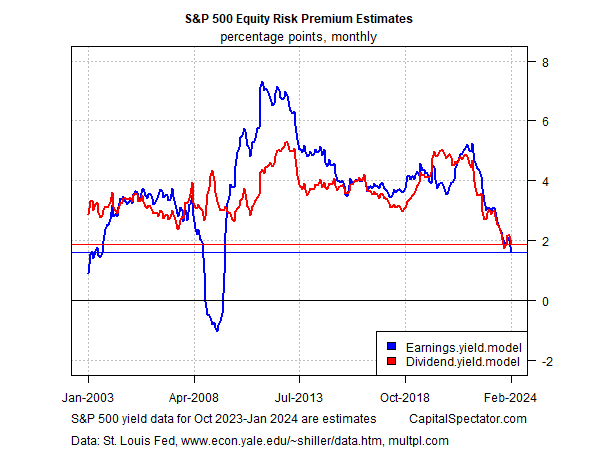...the ASX is in a kind of quandary
1) It has no credible AI stocks
2) ASX bulls feel the need to buy Quality stocks because ASX earnings as seen are mixed with uncertainty and less than favourable forward outlook
3) Buying Quality while shunning the large resource stocks means a concentrated focus on bank stocks
4) Which gets the big banks especially CBA into overstretched valuation levels (remember Australia appetite for high valuation is considerably less than the US)
Too much money wanting to go into the selected few perceived quality stocks render them expensive, and in investing, the time that you buy into the stock is all important, buy them at their peak and you could stand to have to wait for many years to recover your capital (as you saw with my RHC example in the earlier post).
The second issue is buying stocks that are 'dead' i.e not moving while the US continues to make new highs each day, leaves one with a poor risk-reward losing time situation, because when the US melt up is followed suit by a melt down soon thereafter, those 'dead' stocks will be expected to be similarly crushed, not by a lesser degree but by a larger degree. Why? Because while the mega techs could fall 20-30%, they're still recognised as stocks with immense forward outlook, it is simply that their valuation needs to be pared back. However, for 'dead' stocks already impacted by poorer fundamentals, the melt down which would reverberate through the economy would translate into an even dire situation for their business, hence validating a larger mark down in adversity.
This is the situation we're in which makes it important in any buying decision.
Will AI Compensate For A Low Expected Equity Risk Premium?
By James Picerno of Capital Spectator
Friday, February 23, 2024 5:10 PM EST
The surge in demand for Nvidia’s computer chips for artificial intelligence (AI) applications inspires some observers to claim that a new era for the economy is dawning. AI runs the thinking among the most optimistic minds in this realm and will reorder and solve any number of issues on the macro front.
Inflation and growth are at the top of challenges that will potentially fade as an AI-driven world emerges, advises AI expert Patrick Fan, professor of business analytics at the University of Iowa’s Tippie College of Business. “The notion of a virtuous cycle—wherein improvements in one domain precipitate enhancements across others—is particularly salient,” he says. “In the AI-economic nexus, elevated growth could beget higher employment and income levels, spurring increased consumer spending and investment and fueling further economic expansion. This cycle has the potential to underpin sustained economic growth and broad societal welfare.”
The stock market appears to be all-in on the idea. Powered by excitement over Nvidia’s blowout results and the implications for growth in an AI-driven economy, the S&P 500 Index rebounded to a fresh all-time high yesterday.
“A whole new industry is being formed, and that’s driving our growth,” says Jensen Huang, Nvidia’s chief executive officer and co-founder.
The question is whether the rise of AI — and the potential for related developments in the economy overall – render traditional estimates of the equity risk premium meaningless. The Capital Spectator doesn’t have an answer, but the question is top of mind as some conventional equity risk premium metrics continue to fade.
For example, a pair of workhorse models suggest that the market’s excess return over the “risk-free rate” has tumbled sharply in recent years (for details on these models, see this post).
A few weeks ago Matt Smith, investment director at Ruffer, a London-based investment management services firm noted that “The market is fearless at this point” and that “From a risk-reward perspective, US equities in particular are pretty unattractive. They have a lot of momentum, but they are expensive.” History suggests that “expensive” translates into relatively low or possibly negative expected returns. The question before the house is whether history still applies in an AI-driven world. Mr. Market probably knows the answer, but as usual, he’s not talking, at least not in real time.
- Forums
- ASX - General
- Its Over
Its Over, page-20398
-
- There are more pages in this discussion • 2,374 more messages in this thread...
You’re viewing a single post only. To view the entire thread just sign in or Join Now (FREE)










